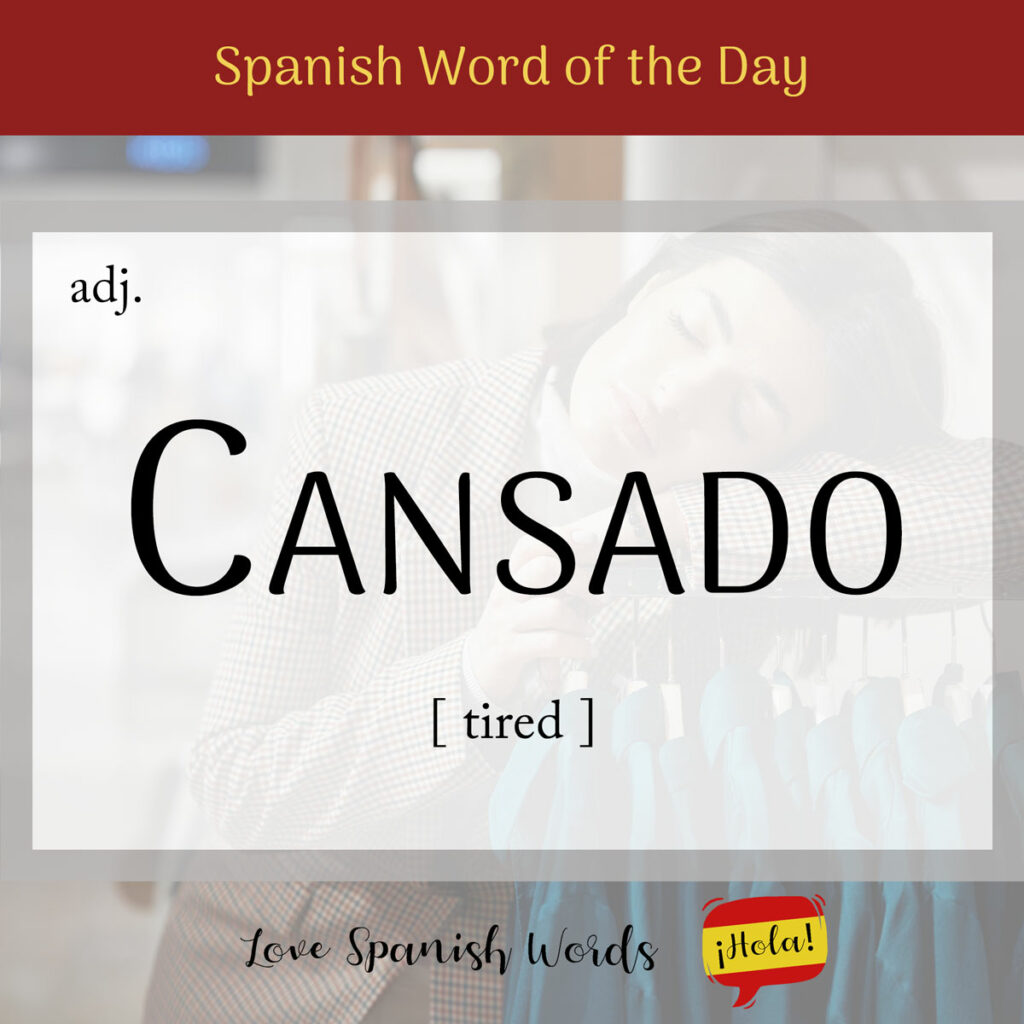Between my hectic work schedule, taking care of my feisty four year old son, and going to our local gym five times a week, I often come home feeling extremely tired and ready for bed. The word for tired in Spanish is cansado.
Latin American Pronunciation
European Pronunciation

Cansado is a masculine adjective whose form changes to cansada when it describes a feminine noun. The respective plural forms are cansados and cansadas. For example:
- el niño cansado = the tired boy
- la niña cansada = the tired girl
- los niños cansados = the tired boys
- las niñas cansadas = the tired girls
Cansado is the past participle of the verb cansar (to tire), which was inherited from the Latin campsāre.
If you want to say I am tired in Spanish, you need to use the verb estoy (“I am”) rather than soy, because estoy refers to a temporary state or condition, while soy (also “I am”) refers to something more permanent. Since being tired is a temporary state, you would say estoy cansado (if you are male) or estoy cansada (if you are female).
Hoy estoy muy cansada.
I’m very tired today.
In addition to tired, cansado can also translate as tiring when describing a job, activity or exercise, for example.
Encuentro este trabajo muy cansado.
I find this job very tiring.
You can also feel tired of something, which is different from being physically exhausted. Conveniently, you can use cansado to express this sense of weariness, exasperation or frustration too, by using the phrase estar cansado de.
¡Estoy cansada de todas tus excusas!
I am tired of all your excuses!
Sometimes cansado can be used in an ironic sense to mean lazy, as in the idiomatic phrase es que nació cansado (he was born lazy).
Another idiomatic expression, used specifically in the Southern Cone, is a las cansadas, which means at long last.


